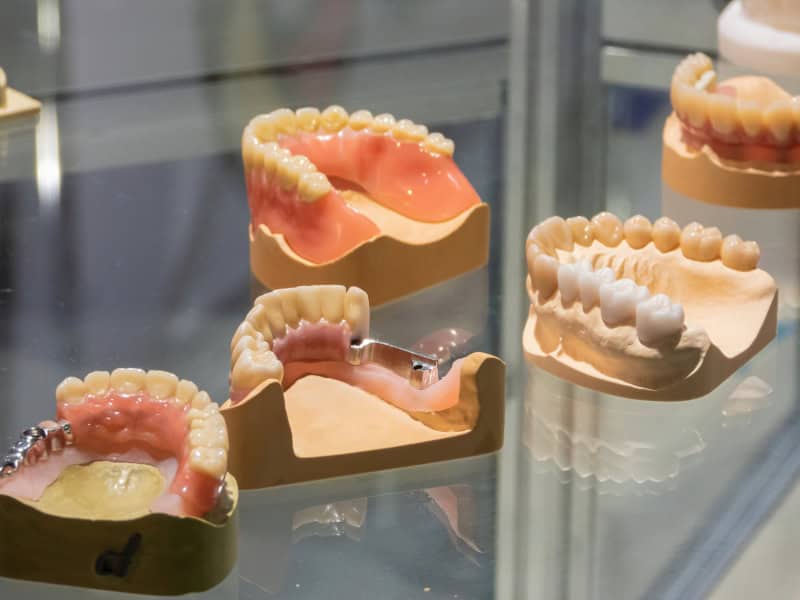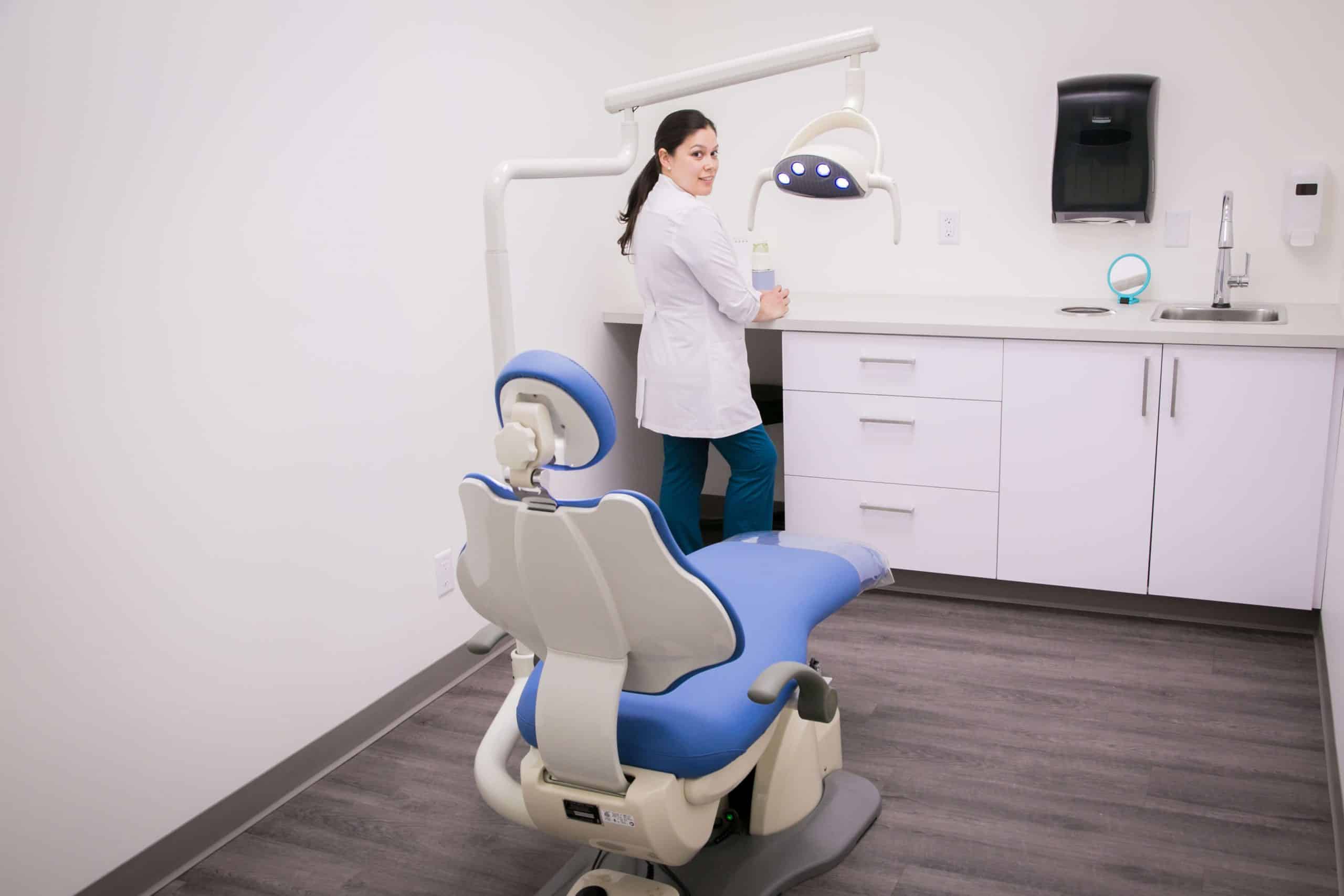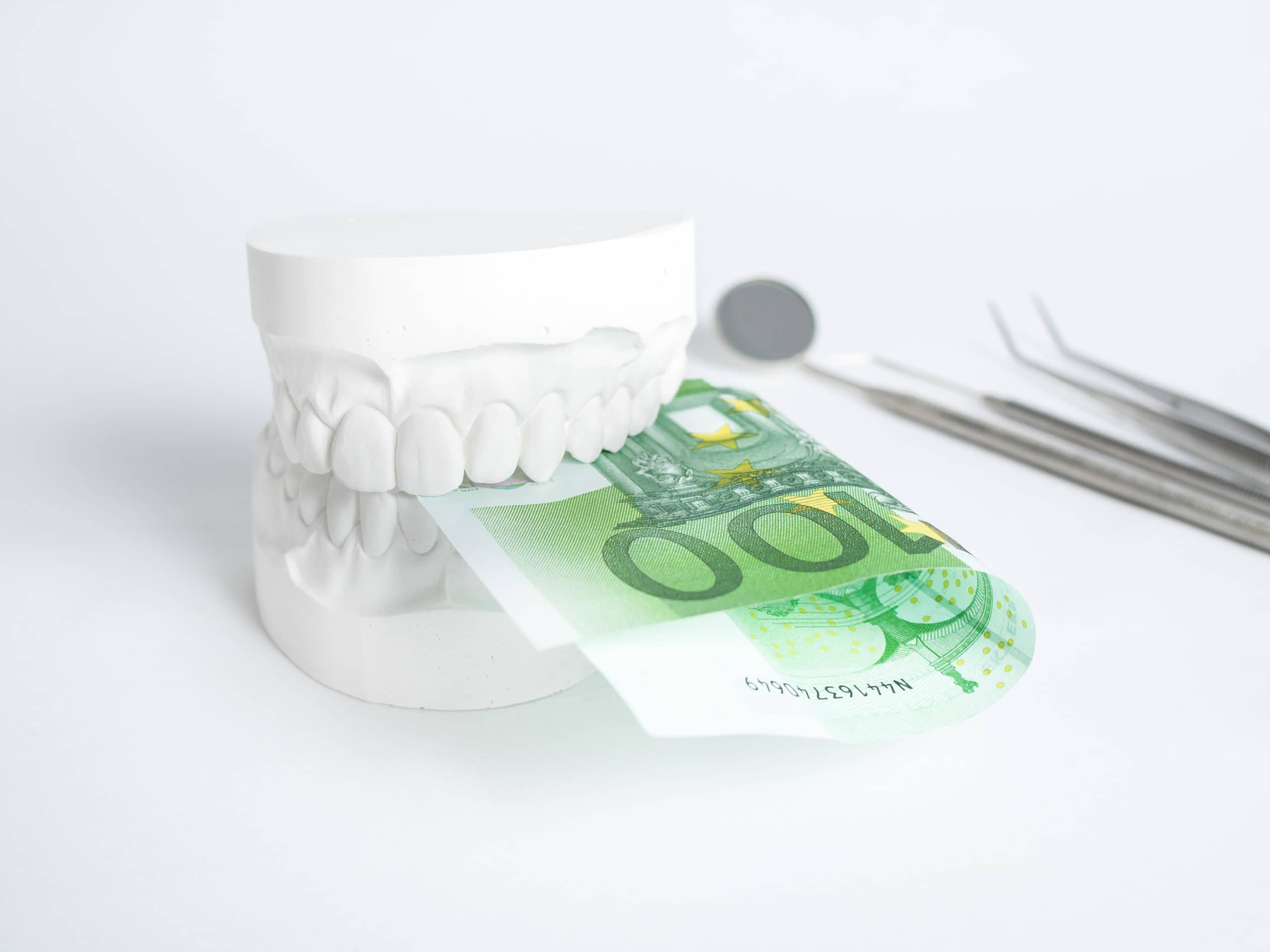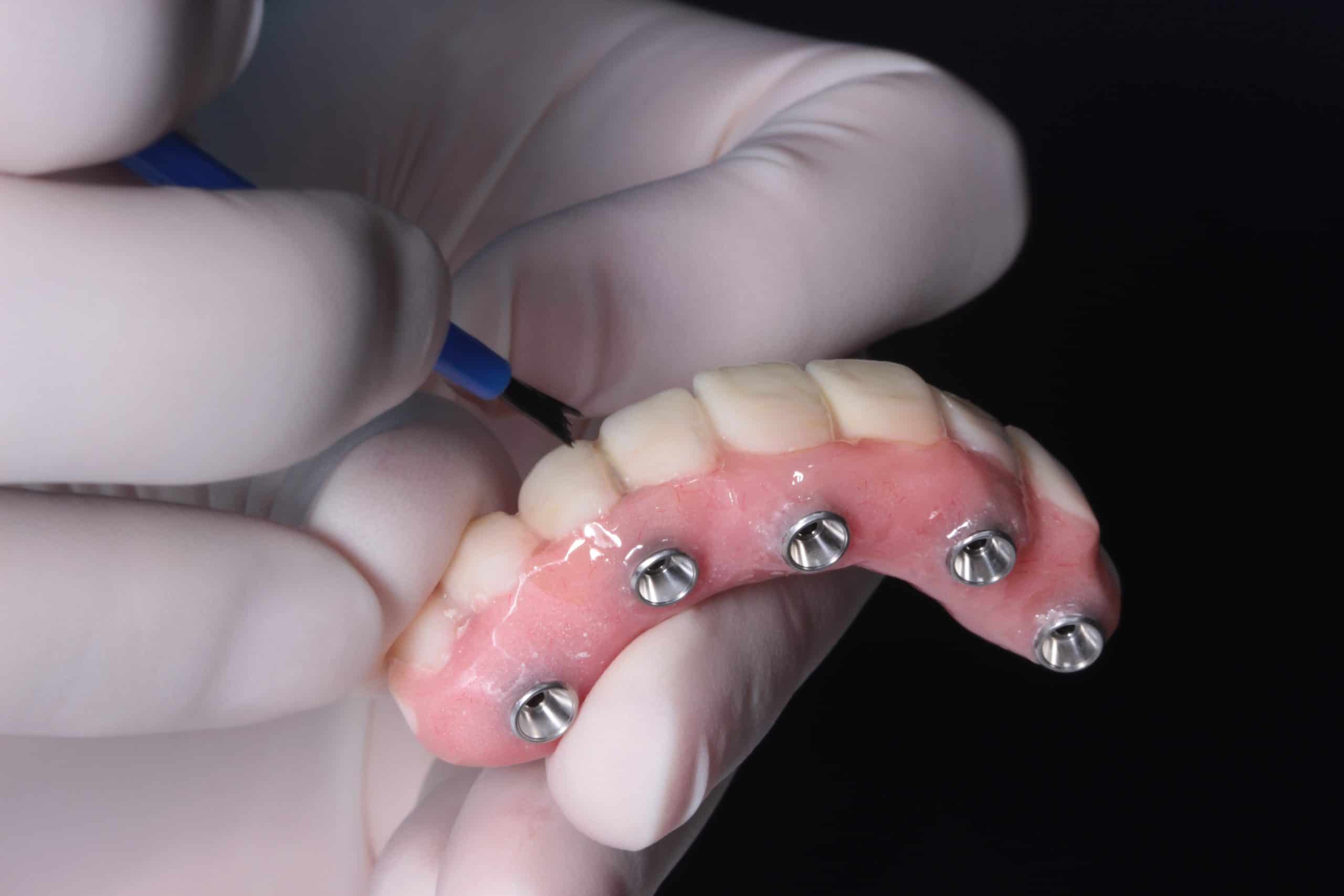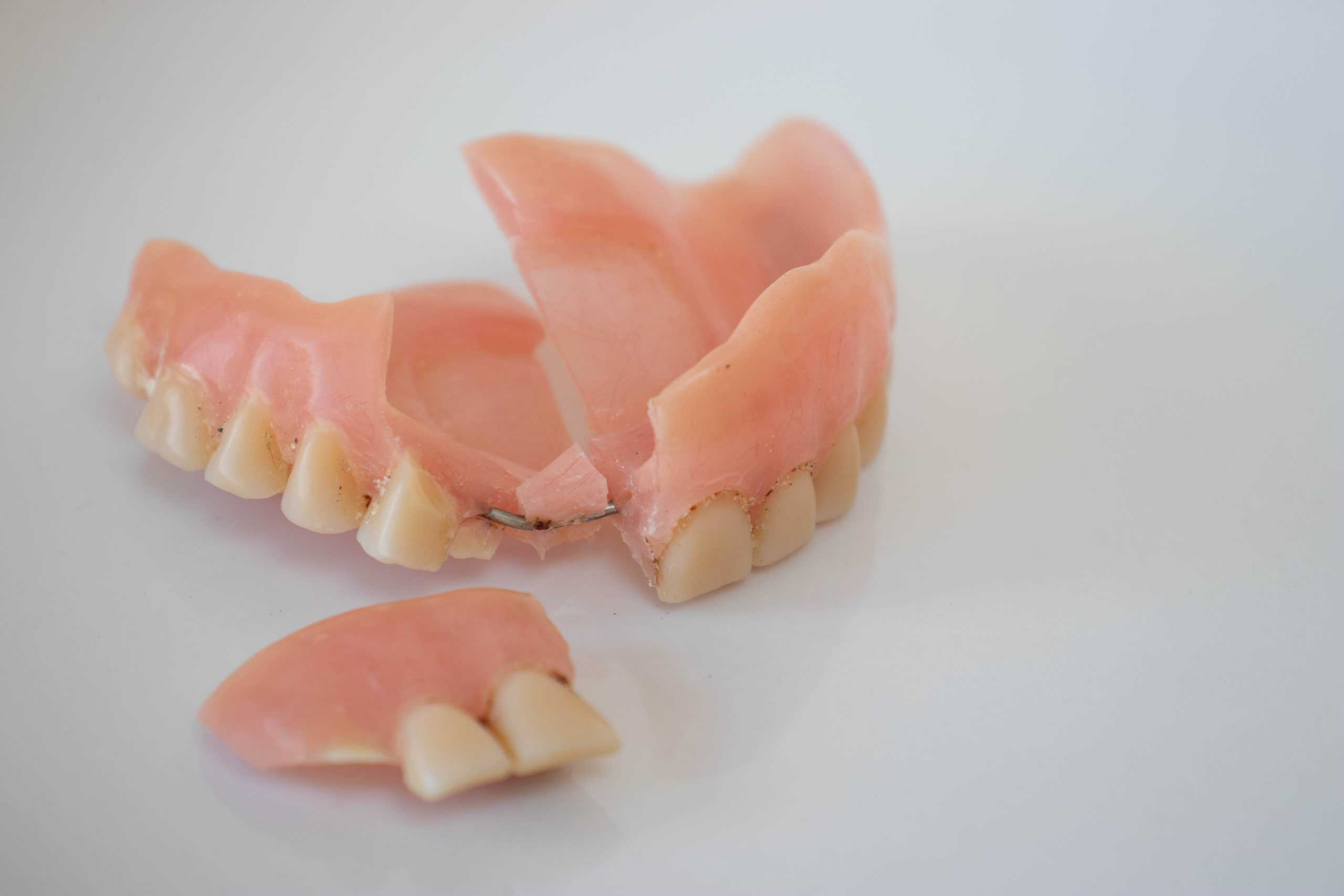
The New Patient’s Guide to Dentures
You’ve almost certainly heard of dentures before, and you might even know people who have them—but how much do you really know about these important dental devices? For instance, did you know there are different types of dentures made from different materials? And would you know how to clean a set of dentures if you had to do it?
Don’t worry; we’ve made learning about dentures easier than ever. Our practice has been helping patients get comfortable and effective dentures for years, and we’re always happy to share our expert knowledge with new visitors. Read on to learn everything you need to know before getting a set of dentures for yourself, so that you can be prepared to enjoy their benefits to the fullest.
What Are Dentures & What Are They For?
Dentures are prosthetic devices that are inserted in the oral cavity to replace missing teeth. They are designed to fit in alongside the existing tissues in a patient’s mouth, making their smile appear whole and seamless.
There are several reasons why a person might choose to get dentures. Here are a few of the most common:
Eating or Speaking Properly
Missing teeth can easily create problems when chewing certain foods or pronouncing certain sounds. Getting dentures can make it considerably easier to eat and speak comfortably again.
Improving Aesthetics
Gaps in a person’s smile can be a source of embarrassment during photos, special occasions, and everyday social activities. Many people choose to get dentures so they can make their smile complete and full again.
Filling Out the Face After Tooth Loss
A person who has experienced significant tooth loss may find their facial muscles sagging, since their natural teeth are no longer there for them to rest on. However, dentures can provide support for these muscles, helping the face appear fuller and more robust.
Restoring Teeth After Gum Disease, Injury, or Tooth Decay
People who have lost a significant number of natural teeth due to decay, disease, or an accident may choose to get dentures so that they can enjoy the benefits of a full set of teeth once again.
Via Pexels.
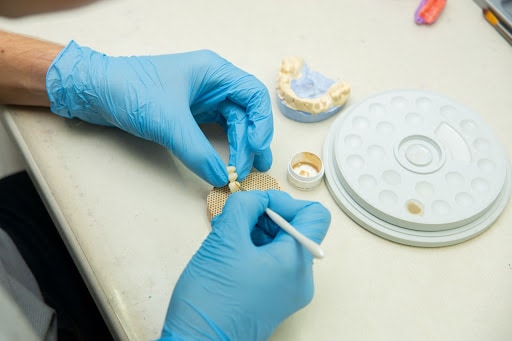
What Types of Dentures Are There?
There are several different types of dentures available, depending on each patient’s needs. Here’s a brief description of each kind:
Complete Dentures
Complete dentures are meant to replace an entire set of missing teeth in a person’s mouth. These dentures require the removal of any natural teeth left in the mouth before they can be inserted.
Once the natural teeth have been removed, the patient can choose a set of standard or precision dentures. Standard dentures will still fill gaps in a patient’s smile, but precision dentures may last longer if cared for properly, can be more comfortable, and are made specifically to complement the patient’s features.
Once the patient has selected standard or precision dentures, a series of impressions and measurements will be taken over the course of several appointments. Wax dentures will then be provided to ensure that the patient likes them before the final product is created. The finished set of complete dentures will have an acrylic base with teeth made from resin or porcelain.
High-quality complete dentures will make it easier to speak, chew food, and smile with confidence. They will also help make the face look richer and more full by providing support for the facial muscles.
Partial Dentures
Partial dentures are made to fill in gaps in a patient’s smile caused by one or more missing teeth. Removable partial dentures made to fit the inside of each specific patient’s mouth can provide the necessary support for your facial muscles and the bones in your jaw, preventing your remaining natural teeth from shifting and growing in unwanted directions.
Our high-quality partial dentures are generally made in one of the following ways:
- Cast Metal Framework: Partial dentures with a cast metal framework use metal clasps to keep the denture secured to other teeth and tissues within the oral cavity. This type of partial denture is among the most popular because of its relative durability and ease of maintenance.
- Flexible: Flexible partial dentures are commonly made from a combination of vinyl and thermoplastic material, and do not require metal clasps to stay in place. They are often more comfortable to wear than partial dentures with a cast metal framework, but unlike dentures with a cast metal framework, they cannot be repaired if cracked or broken.
- Acrylic: Acrylic partial dentures are less expensive than other types, but also less durable. They are often used temporarily, while the patient is waiting for a more permanent solution.
Implant Dentures
Implant dentures require a more involved process than complete or partial dentures. Before this type of denture can be inserted, the patient must have dental implants inserted into their jawbone by a dental surgeon.
Once inserted, the dental implants function like the natural roots of the patient’s teeth. Implant dentures can then be made to fit snugly on top of these implants.
Because the dentures and the implants are made to fit together, implant dentures tend to fit more securely than other types. They can also be removed for cleaning or resting, providing many patients with the best of both worlds.
How to Care for Your New Dentures
If you are about to get dentures of any kind, it’s vital that you know how to maintain them. Use these tips to make sure your dentures last as long as possible:
- Clean your dentures every day. Use a soft-bristled toothbrush and brush them as you would brush your natural teeth. You may also wish to use an ultrasonic cleaner.
- Keep your dentures wet when not in use.We recommend storing your dentures in a special cleansing solution, although you can also place them in water (as long as it is clean and cool).
- Be gentle with your dentures. Dentures can be cracked or broken from rough contact with other objects, even when they are made from durable materials. It is vital to treat your dentures like the delicate and sensitive devices they are to avoid accidental cracking or breakage.
- Keep the rest of your mouth clean. Brush, floss, and use mouthwash on a regular basis to prevent bacteria from forming elsewhere in the mouth and endangering the natural teeth or tissues your dentures are attached to.
Recent Denture Developments
Dentures have been made with acrylic resin and porcelain for years, but as time goes by, the techniques used to fit and mould dentures are becoming increasingly precise. Modern dentures are made using multiple impressions of a patient’s teeth, different color options, and additional appointments to ensure the fit and quality of the finished product.
If you have questions about whether you need dentures or are unsure of what kind might be best for you, feel free to contact our practice with your questions. We’ll be only too happy to give you more details so you can get a set of dentures that will have you grinning for years to come.
